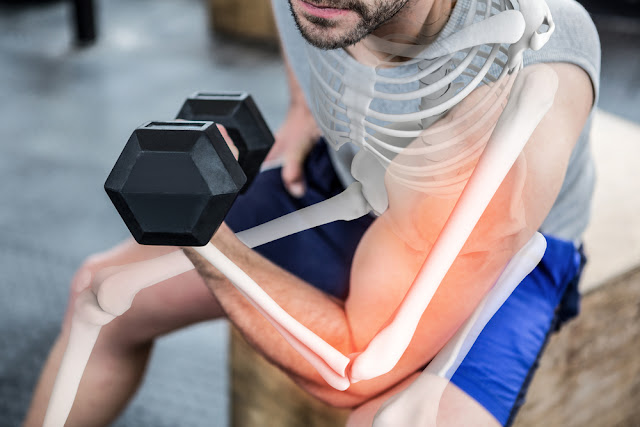Are Your Bones Strong? Here's How to Know
Read Also
Bone is one of the important body parts that support your daily activities. Without strong bones, activities you can do to be limited.
For that, it is important for you to keep bone health in order to stay strong. This needs to be done as early as possible because generally the bone density decreases with age. Well, right now, are your bones still strong?
How to know bone density
Of course it is difficult to know whether bone health is well preserved or not. Strength and bone density can not be seen just like that. You need to visit a doctor to perform tests that can show bone density so that it can detect whether you are at risk of osteoporosis or not.There are various tests that can measure bone density. One of the most common tests performed is dual energy x-ray absorptiometry (DEXA). DEXA uses a special x-ray scanner that can measure bone density.
Typically, this bone density test is only recommended for those at risk of osteoporosis, osteopenia, fractures, spinal abnormalities, or women after menopause.
Is there any other way to know bone health?
In addition to doing bone density testing, taking note of the following signs can help you know bone health. The following signs can appear when your bone health begins to decline.- Nails are easily broken. Nails can reflect your bone condition. This is because the nails and bones are composed of the same mineral, which is calcium, and the same protein (collagen). If your nails are easily broken, this could mean your body lacks calcium in the bone. Thus, bones can also become easily fragile
- The gums begin to decline or escape from the teeth. Calcium that make up the bones can continue to decrease in number making the bones fragile. It can also occur in the jawbone. Jawbone that decreases density can make the gums come down or out of teeth. As a result, your teeth are easy to shake and date. As reported by Prevention, research shows that women with osteoporosis risk three times greater tooth loss.
- Hand grip began to weaken. Research shows that there is a relationship between hand grip strength and bone density in the arms, spine, and hip. So, if you feel your grip is weakening, for example when holding on a bus or when opening a bottle, then your bone density may start to decline.
- Often feel cramps or muscle aches and bone pain. Sometimes, these symptoms may often be overlooked or considered to occur due to lack of exercise. But, these symptoms can indicate your bones are beginning to lose its density.
How to keep bones strong?
Some things you can do to keep bones strong and healthy, namely:- Increase calcium intake. Calcium is a major mineral constituent of bone. Thus, lack of calcium intake can lead to reduced bone density. You can get calcium from foods and calcium supplements. Some people, such as pregnant women, nursing mothers, children, adolescents, and people with a vegan diet may need to take calcium supplements because their calcium needs are very high and calcium from food alone may not be enough.
- Enough vitamin D. Needs Vitamin D can help the body absorb calcium, so the need for vitamin D must also be met. You can get vitamin D from morning or afternoon sun, for at least 10-15 minutes. Also, from food, such as sardines, salmon, tuna, eggs, and milk.
- Regular exercise. Exercise, especially those that put a strain on the bones-like running and weight-lifting, can help strengthen bones. Thus, regular exercise needs to be applied early because it can affect bone health in old age.
- Maintain ideal weight. Weight also affects bone health. Being overweight can make the risk of fractures and osteoporosis increasing. However, if you are overweight and decide to go on a weight-loss diet, keep an eye on calcium intake and do regular exercise to keep bone density awake. Perform a healthy weight loss diet.
- Stop smoking and drinking alcohol. Smoking and drinking alcohol can decrease bone density and increase the risk of fractures. So, you should avoid this bad habit if you want the bone to remain strong until old age.

0 Response to "Are Your Bones Strong? Here's How to Know"
Post a Comment